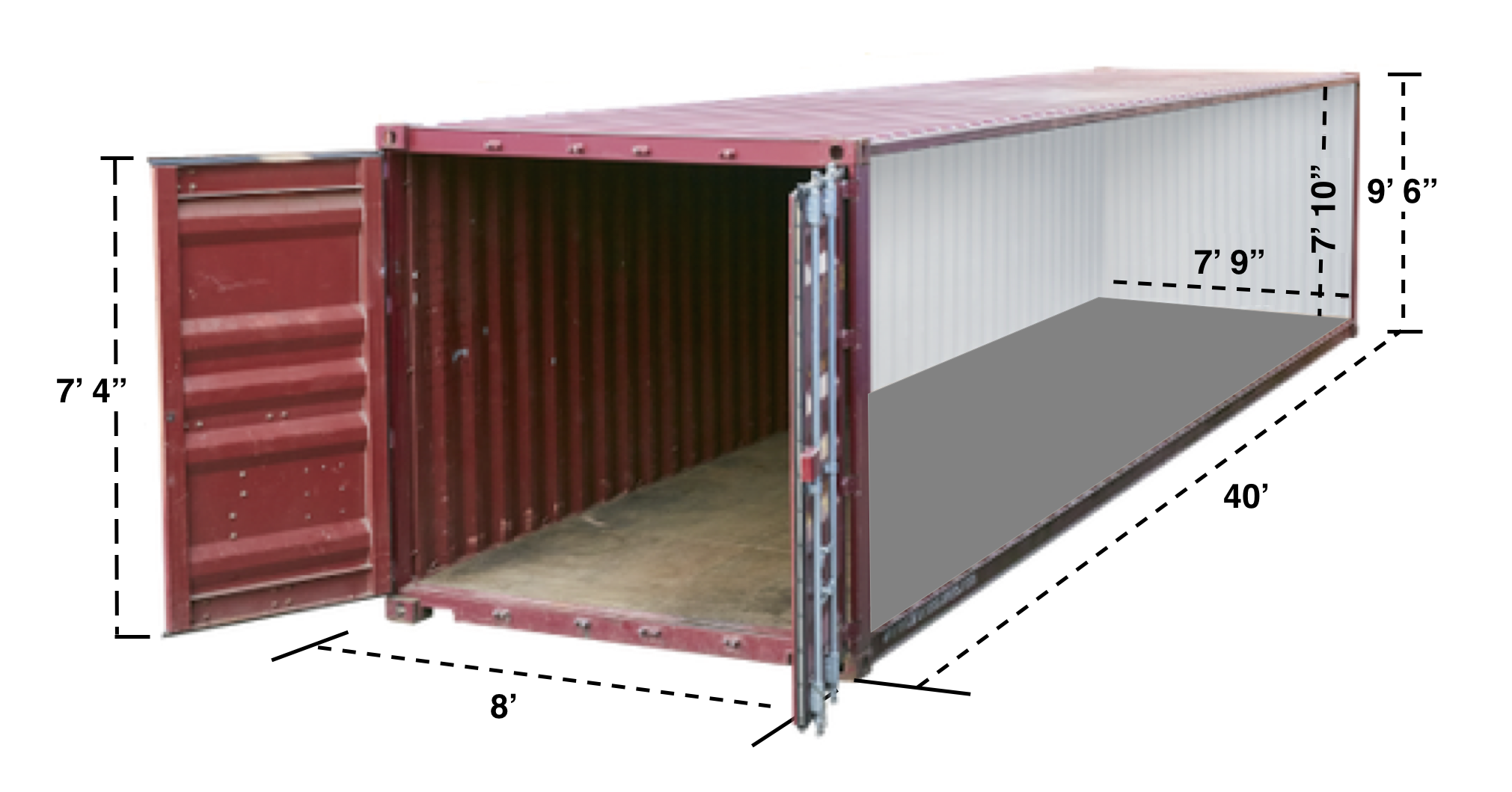FAQ - SHIPPING CONTAINERS:
Factors to Consider When Choosing a Container Size:
Purpose: Determine the primary use—storage, transportation, or conversion into a living or working space.
Space Availability: Assess the area where the container will be placed to ensure adequate space for delivery and setup.
Budget: Consider both the initial cost and potential modification expenses.
Future Needs: Anticipate any future requirements that might necessitate a larger container.
Standard Shipping Container Sizes:
Shipping containers come in various sizes, each tailored to specific needs.
*The most used sizes are 20-foot, 40-foot, and 40-foot ‘High’ Cube containers.
Tough & Trusted -Shipping Containers

-
Dimensions:
- Exterior: 20' length x 8' width x 8'6" height
- Interior: 19'4" length x 7'8" width x 7'10" height
-
Capacity: Approximately 1,170 cubic feet; holds about 10 standard pallets
-
- Tare (Empty): Around 4,900 lbs
- Max Payload: Up to 47,900 lbs
-
- Small businesses
- Residential storage
- Construction sites
- Locations with limited space
-
- Storing tools, equipment, or seasonal items
- On-site storage for construction projects
- Personal storage solutions
- Mobile offices or workshops
20-Foot Long - Shipping Container
-
- Exterior: 40' length x 8' width x 8'6" height
- Interior: 39'6" length x 7'8" width x 7'10" height
-
Approximately 2,390 cubic feet; holds about 22 standard pallets
-
- Tare (Empty): Around 8,377 lbs
- Max Payload: Up to 58,823 lbs
-
- Large storage needs
- Shipping bulk goods
- Conversion projects
-
- Warehousing and bulk storage
- Business inventory overflow
- Shipping large quantities of goods
- Container home or office conversions
40-Foot Long - Shipping Container
40-Foot Long - High Cube Shipping Container
-
- Exterior: 40' length x 8' width x 9'6" height
- Interior: 39'6" length x 7'8" width x 8'10" height
-
Approximately 2,660 cubic feet; holds about 22 standard pallets with additional height
-
- Tare (Empty): Around 8,860 lbs
- Max Payload: Up to 58,823 lbs
-
- Storing tall items
- Modifications requiring extra height
- Maximizing vertical space
-
- Storing oversized machinery or stacked goods
- Taller container homes or offices
- Refrigerated storage unit conversions
- Agricultural or hydroponic farming projects







